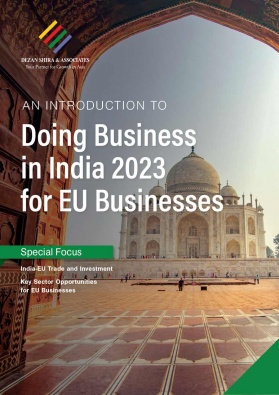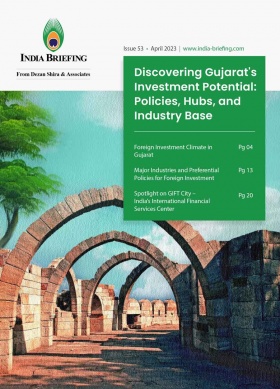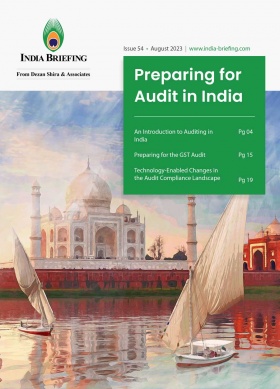India Holds Auction for 20 Blocks of Critical Minerals, Including Lithium and Graphite
India is soliciting bids for critical minerals such as lithium and graphite. The first tranche of auction of these minerals took place November 29, 2023, for 20 blocks of critical and strategic minerals. We indicate the location of these mineral blocks in the states of Bihar, Gujarat, Jharkhand, Odisha, Tamil Nadu, Uttar Pradesh, Chhattisgarh, and Jammu and Kashmir.
Information regarding mineral blocks, tender documents, auction terms, timelines, etc., can be found on the MSTC auction platform at www.mstcecommerce.com/auctionhome/mlcl/index.jsp. The auction took place online through a transparent two-stage ascending forward auction process.
Eligible bidders will be selected based on the highest percentage of the value of mineral dispatch quoted by them.
Where are the 20 blocks of critical minerals located?
|
S. No. |
Block name |
State |
Commodity |
ML/CL* |
|
1. |
Chutia-Nauhatta Glauconite Block |
Bihar |
Potash |
CL |
|
2. |
Pipradih-Bhurwa Glauconite Block |
Bihar |
Potash |
CL |
|
3. |
Genjana Ni, Cr & PGE Block |
Bihar |
Nickel, Platinum Group Elements, Chromium |
CL |
|
4. |
Kundol Nickel and Chromium Block |
Gujarat |
Nickel & Chromium |
CL |
|
5. |
Muskaniya-Gareriatola-Barwari Potash Block |
Jharkhand |
Potash |
CL |
|
6. |
Dudhiasol East Nickel and Copper Block |
Odisha |
Nickel and Copper |
ML |
|
7. |
Babja Graphite and Manganese Block |
Odisha |
Graphite and Manganese |
ML |
|
8. |
Biarapalli Graphite and Manganese Block |
Odisha |
Graphite and Manganese |
ML |
|
9. |
Akharkata Graphite Block |
Odisha |
Graphite |
CL |
|
10. |
Vellakal Central (Segment-A) Molybdenum Block |
Tamil Nadu |
Molybdenum |
CL |
|
11. |
Nochchipatti Molybdenum Block |
Tamil Nadu |
Molybdenum |
CL |
|
12. |
Velampatti North A & B Molybdenum Block |
Tamil Nadu |
Molybdenum |
CL |
|
13. |
Kurunjakulam Graphite Block |
Tamil Nadu |
Graphite |
CL |
|
14. |
Iluppakudi Graphite Block |
Tamil Nadu |
Graphite |
CL |
|
15. |
Mannadipatti Central Molybdenum Block |
Tamil Nadu |
Molybdenum |
CL |
|
16. |
Marudipatti (Central) Molybdenum Block |
Tamil Nadu |
Molybdenum |
ML |
|
17. |
Kurchha Glauconite Block |
Uttar Pradesh |
Potash |
CL |
|
18. |
Pahadi Kalan – Gora Kalan Phosphorite Block |
Uttar Pradesh |
Phosphorite |
CL |
|
19. |
Salal-Haimna Lithium, Titanium and Bauxite Block |
UT: Jammu and Kashmir |
Lithium, Titanium, Bauxite (Aluminous Laterite) |
CL |
|
20. |
Katghora Lithium and REE Block |
Chhattisgarh |
Lithium and Rare Earth Elements |
CL |
Note: ML/CL* indicates whether it is a Mining Lease (ML) or Composite License (CL).
What are the 24 critical and strategic minerals that the Indian government has identified?
|
S. No |
Critical and Strategic Minerals |
|
1. |
Beryl and other beryllium bearing minerals |
|
2. |
Cadmium bearing minerals |
|
3. |
Cobalt bearing minerals |
|
4. |
Gallium bearing minerals |
|
5. |
Glauconite |
|
6. |
Graphite |
|
7. |
Indium bearing minerals |
|
8. |
Lithium bearing minerals |
|
9. |
Molybdenum bearing minerals |
|
10. |
Nickel bearing minerals |
|
11. |
Niobium bearing minerals |
|
12. |
Phosphate (without uranium) |
|
13. |
Platinum group of elements bearing minerals |
|
14. |
Potash |
|
15. |
Minerals of the “rare earths” group not containing Uranium and Thorium |
|
16. |
Rhenium bearing minerals |
|
17. |
Selenium bearing minerals |
|
18. |
Tantalum bearing minerals |
|
19. |
Tellurium bearing minerals |
|
20. |
Tin bearing minerals |
|
21. |
Titanium bearing minerals and ores (ilmenite, rutile, and leucoxene) |
|
22. |
Tungsten bearing minerals |
|
23. |
Vanadium bearing minerals |
|
24. |
Zirconium bearing minerals and ores including zircon |
READ: India Identifies List of 30 Critical Minerals: Economic Implications
Key goals of the auction process
The tranche auction of critical and strategic minerals aligns with India’s overarching strategy to secure ample domestic reservoirs of vital raw materials pivotal for driving growth and R&D innovation in frontier industries. Critical minerals cater to the needs of sectors like renewable energy, defence, agriculture, pharmaceutical, high-tech electronics, telecommunications, transport, creation of gigafactories etc.
India has been actively seeking means to ensure a stable supply of lithium, a crucial raw material essential for manufacturing electric vehicle batteries. In February this year, the country identified its inaugural lithium deposits in Jammu and Kashmir, estimating reserves to be approximately 5.9 million tonnes.
State-owned enterprises are also pursuing opportunities worldwide in search of these valuable mineral resources. Domestic energy giants Coal India Ltd. and NTPC Ltd. are carefully planning their entry into the mining sector to harness these essential materials, which will fuel the green sector.
Building global partnerships to secure supply chains
Beyond domestic resources, India is also tapping into global partnerships. New Delhi has sought a strategic partnership with Australia to secure its critical mineral supply chain. The two countries will jointly invest $3 million each in five exploration projects in Australia.
Legacy Iron Ore, in collaboration with NDMC Ltd. (India’s largest iron ore company), is actively involved in exploring and developing mineral projects in Western Australia, focusing on iron ore, manganese, gold, and base metals.
Further, KABIL (Khanij Bidesh India Limited) is set to make a significant investment in Australia’s rare earth sector, via a joint venture of three state-run Indian firms and the Critical Minerals Office under Australia’s Department of Industry, Science and Resources.
NMDC, a Public Sector Enterprise under India’s Ministry of Steel, is conducting pre-feasibility studies (PFS) for magnetite iron ore and lithium mining in Australia through its Australian subsidiary, Legacy, in collaboration with Hancock Mining, the world’s fifth-largest mining company. This stage is typically an early analysis of a potential mining project, aim to provide essential information for decision-making, covering logistics, capital requirements, and key challenges.
NMDC will commence the PFS studies for its lithium mines in Australia from April 2024, as stated by Amitava Mukherjee, the Chairman cum Managing Director (Additional Charge) and Director (Finance). Mukherjee anticipates completing the preliminary feasibility studies around October to November 2025.
NMDC is also exploring a gold bearing zone near the Laverton area in Australia and has commissioned a “very small gold mine”.
Besides Australia, India is reportedly in talks with Chile and Bolivia in South America, to tap into their lithium mineral assets. With Argentina, the Mines Ministry is said to be negotiating the acquisition of mining blocks. Meanwhile, for Chile, the ministry is in the process of finalizing non-disclosure agreements.
Hyderabad-based battery materials manufacturer, Altmin, has entered into a strategic agreement with Bolivian state company Yacimientos de Litio Bolivianos (YLB) to establish a pilot plant for active materials, aiming to manufacture lithium-ion batteries in Bolivia. The collaboration focuses on the development of the raw materials supply chain and the production of cathode active materials (CAMs) for lithium-ion batteries, aligning with both countries’ industrialization efforts in this critical resource sector. The alliance aims to produce over 10 gigawatt hours (GWh) of lithium iron phosphate (LFP) by 2030. Altmin Founder & MD Mourya Sunkavalli emphasized the strategic advantage of securing a stable supply of lithium carbonate from Bolivia, the world’s largest producer of this resource.
Regulatory reforms in India’s mining sector
In July 2023, India revised its mining regulations with the aim of enhancing the exploration of critical minerals like lithium by permitting private miners to actively search for these materials. These regulatory changes will play a crucial role in the auctioning of recently identified lithium blocks in Jammu and Kashmir and Karnataka state.
READ: India Amends Mining Law to Allow Private Sector Participation in Critical Mineral Exploration
In October, India’s cabinet granted approval for royalty rates concerning three critical and strategic minerals. The endorsed royalty rates for lithium, niobium, and rare earth elements (REE) are:
- Lithium – 3% of London Metal Exchange price
- Niobium – 3% of Average Sale Price (both for primary and secondary sources)
- REE – 1% of Average Sale Price of Rare Earth Oxide
Why these developments hold crucial to the trajectory of India’s development
Critical minerals have become integral to India’s economic development and national security. Notably, minerals like lithium and rare earth elements have gained significance in light of India’s commitment to energy transition and the goal of achieving net-zero emissions by 2070.
The strategic importance of lithium, niobium, and REEs is further underscored by their uses and the geopolitical landscape. Encouraging domestic mining is anticipated to reduce imports and foster the establishment of related industries and infrastructure projects, consequently contributing to increased employment opportunities in the mining sector.
China accounted for 70 percent of global mining of rare earths in 2022, followed by the US, Australia, Myanmar, and Thailand, per data from the US Geological Survey (USGS). In addition, China produces 85 percent of rare earth finished products, 85 percent of rare earth oxides, and controls 95 percent of rare earth manufacturing. In October this year, China announced it would require permits for the export of some graphite products, in the interest of national security. The move is widely been read as a retaliation for US curbs on sales of high-tech to China, and is indicative of how the country’s dominant position can be used to its advantage. China also dominates other critical mineral supplies, including forms of refined cobalt, nickel, and manganese, which are used in electric vehicle batteries.
The Geological Survey of India (GSI) recently submitted the exploration report for REE and lithium blocks. Additionally, the GSI and other exploration agencies are actively conducting surveys for critical and strategic minerals across the country. The Central Government will soon launch the initial tranche of auctions for critical and strategic minerals, including lithium, REE, nickel, platinum group elements, potash, glauconite, phosphorite, graphite, molybdenum, and more.
READ: EV Sector in India: Production Capacity, Government Targets, and Market Performance
This article was originally written November 14, 2023. It was last updated December 8, 2023.
About Us
India Briefing is produced by Dezan Shira & Associates. The firm assists foreign investors throughout Asia from offices across the world, including in Delhi and Mumbai. Readers may write to india@dezshira.com for more support on doing business in India.
We also maintain offices or have alliance partners assisting foreign investors in Indonesia, Singapore, Vietnam, Philippines, Malaysia, Thailand, Italy, Germany, and the United States, in addition to practices in Bangladesh and Russia.
- Previous Article India’s Economic Rise: How Global Tech Giants are Chasing the Next Big Growth Engine
- Next Article Status of India’s Digital Competition Law









